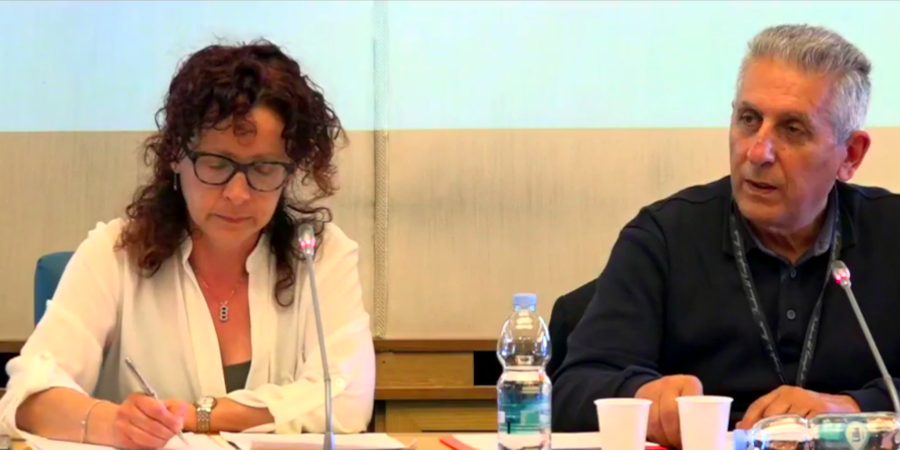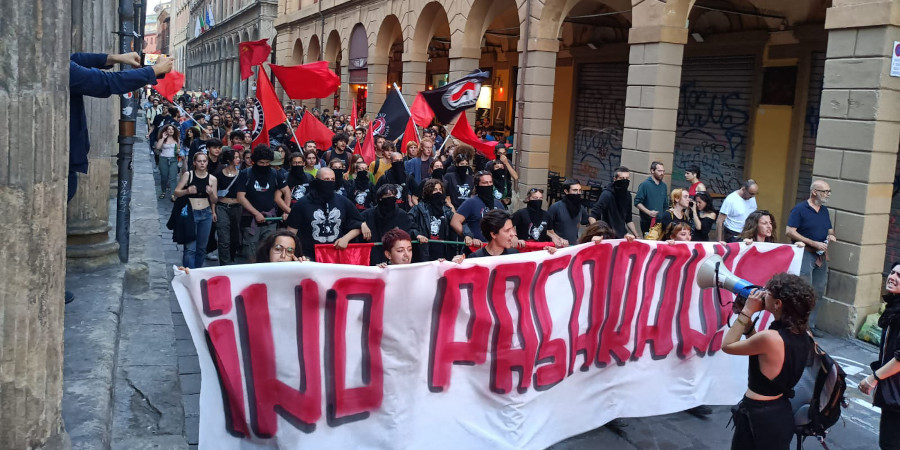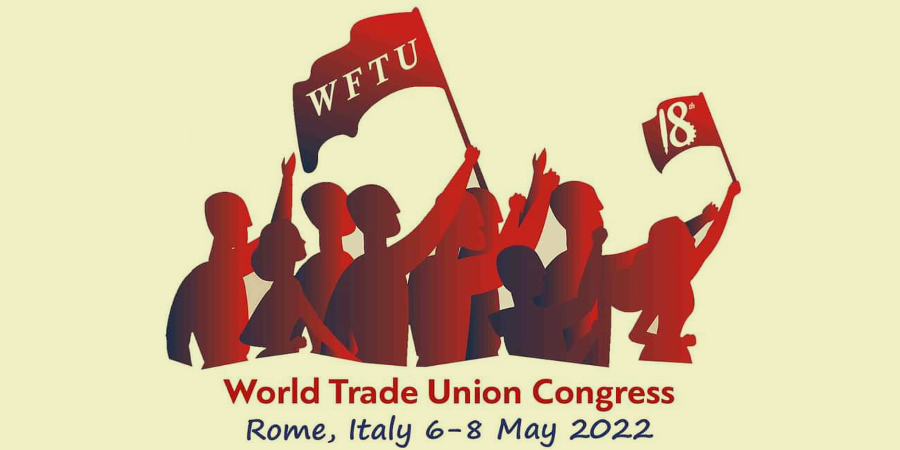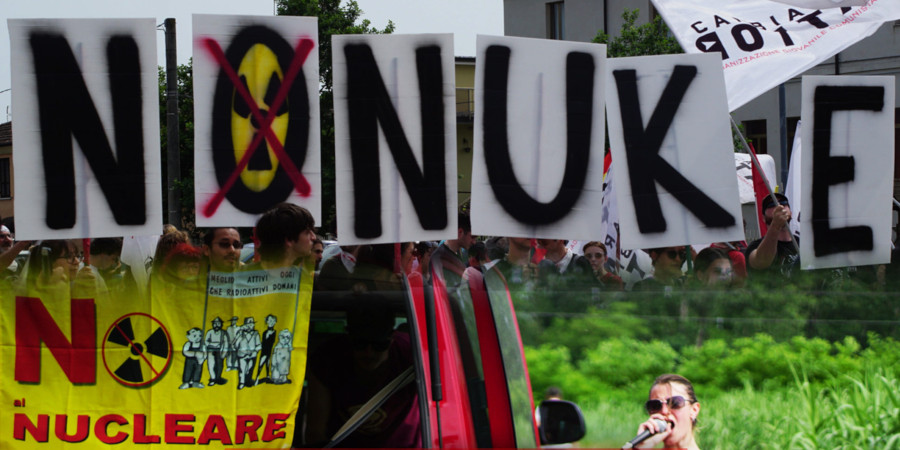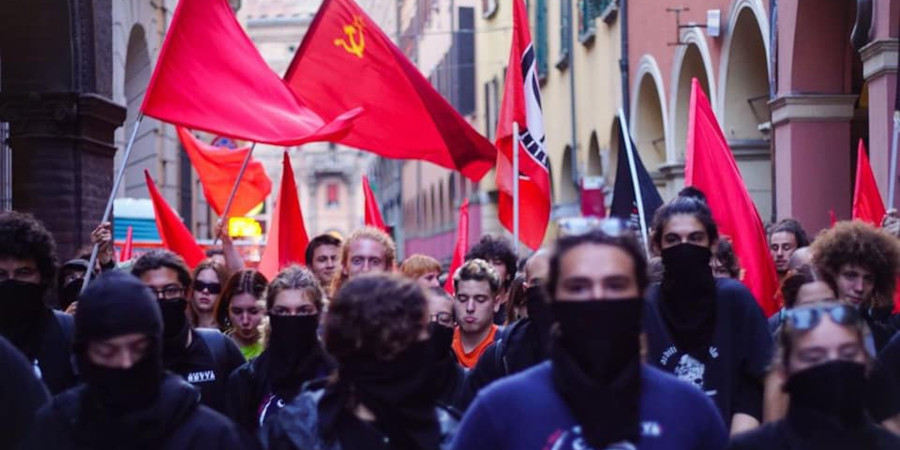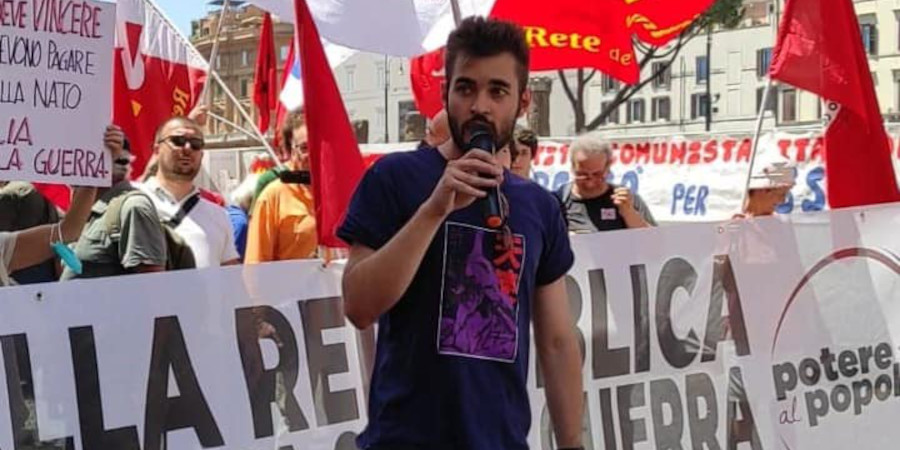| english | español | français | italiano |
Interview with Cinzia Della Porta, Usb leader, ahead of the World Trade Federation Union Congress to be held in Rome at the weekend.
In this climate characterised by war and the war economy, you will host the World Trade Federation Union Congress in Rome in a few days’ time. What expectations do you have of this appointment?
War, crisis, pandemic will be the themes of the 18th congress of the World Trade Union Federation, the international workers’ class movement. The WSF is militant, internationalist, class-based and USB has been part of it since it was formed, we joined because we recognise in the WSF the same principles that led us to build the class, unitary, independent, conflictual union in Italy.
The FSM has, since its constitution, placed at the centre of the action of the international workers’ movement the constant commitment to fight war and the causes that determine it, today in this situation, the appointment takes on even greater importance. a moment of analysis, confrontation, and above all to define the function of class unions in the world in the current phase.
The congress, from 6 to 8 May, will be an extraordinary event, only previously realised in 1949 with Giuseppe Di Vittorio’s CGIL.
There will be 435 delegates in Rome representing 101 countries to which another 300 delegates connected via live streaming will be added, a limitation made necessary by the difficulties linked to the pandemic.
The only time Italy has hosted a world assembly of the WSF was 73 years ago, in 1949 in Milan on the occasion of the second congress, when Giuseppe Di Vittorio, general secretary of the united CGIL, was presiding over the World Trade Union Federation.
Since then, in spite of the splits led in the 1950s by the American trade union AFL and the British TUC, the WSF has grown relentlessly throughout the world, even overcoming the end of the USSR with momentum.
Since 1961, the year in which the CGIL left the international trade union of which it had been the founder and leader in the post-war period, it was only in 2010 that the relationship with Italian men and women workers was re-established and consolidated, thanks to the membership of the USB Confederation.
Now the Presidential Council of the FSM, which met on 1 and 2 February, has decided to entrust the USB with the organisation of the world congress. The number of delegates in attendance will be reduced compared to the most recent congresses in Havana, Athens and Durban (South Africa) due to the difficulties linked to the Covid-19 pandemic, but active participation, with the possibility of speaking remotely, will be guaranteed even for those who cannot physically be in Rome.
Trade union delegates from all over the world will participate in the Fsm congress. They represent millions of workers in dozens of countries. What can be the points of convergence of this dimension of class internationalism?
435 delegates from 101 countries will participate, representing all continents.
The slogan of the congress is: UNITED WE CONTINUE: FOR THE SATISFACTION OF OUR NEEDS TODAY. AGAINST IMPERIALIST AND CAPITALIST BARBARISM.
The points of convergence are many the war, the competitive mechanism of the capitalist system, the international economic crisis and international competition, the European union, an imperialist pole under construction, the condition of workers in the world, with appropriate differences, is subject to the same logic of exploitation and oppression.
The common analysis of the situation and the resulting paths of struggle, of coordination are essential. starting with the opposition war and the coordination of workers in the value chain from labourers to logistics are necessary elements.
On the global economic crisis and war there are different conditions and perceptions internationally. A very gloomy situation in Europe but a different assessment and condition in the rest of the world. In reverse, emancipation processes seem to run faster in other countries than in ‘old Europe’. What do you think about this?
This congress is taking place under particularly difficult and unprecedented conditions for workers all over the world due to the pandemic that has caused millions of deaths, the global economic crisis and the intensification of the struggle for control of markets, energy resources and shipping routes for goods increases the risk of a generalised war and subjects workers all over the world to continuously worsening conditions.
In Latin America, the US grip on hegemony is loosening and turning its gaze elsewhere, processes are underway that point in a direction towards the overthrow of the capitalist system and its imperialist policies.
In Africa, movements are consolidating that are questioning the European imperialist presence and claiming true and not mannerist independence.
In Europe the processes are undoubtedly slower, and this is also due to the strong influence in all countries of the ETUC-affiliated trade unions, which are fed by governments that use them as real social shock absorbers to prevent workers from becoming aware of the causes of their condition of exploitation.
You come to this congress with a significant demonstration behind you, that of 22 April, which put ‘the workers’ variant’ back at the centre. What is your assessment of the demonstration and the signal it sent?
The demonstration on 22 April, with a strike of the production, trade and logistics sectors, saw ‘the workers’ variant’ in the square together with the students.
It sent a huge signal, a class recomposition that we have been working on for some time and that is necessary to respond adequately to the current situation. a combative and true procession, with workers and students, the likes of which we have not seen in a long time.
We brought the workers back as protagonists of a general proposal LOWER THE WEAPONS, RAISE THE WAGES. The workers are showing that they have clear ideas about the war and about the government’s choices, blocking the sending of weapons like in Pisa and Genoa and mobilising for a day of strike like last Friday.
The 22nd was an important day, built with a lot of work on our part and with which we are satisfied both for the result of participation and for what it represents in a situation like this, not a demonstration of representatives but a real worker and student participation. Obviously it is a starting point, but the path is underway, from company specifics to a general plan.
3/5/22

